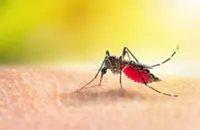GEORGE TOWN: Baiting female Aedes mosquitoes with sugar could be the key to reducing dengue cases, which have infected over 23,000 people and killed 16 in the first 11 weeks of the year.
The “sugar bait technology” is a mimic of flower nectar laced with toxins that will end the Aedes mosquito’s life cycle at every stage.





